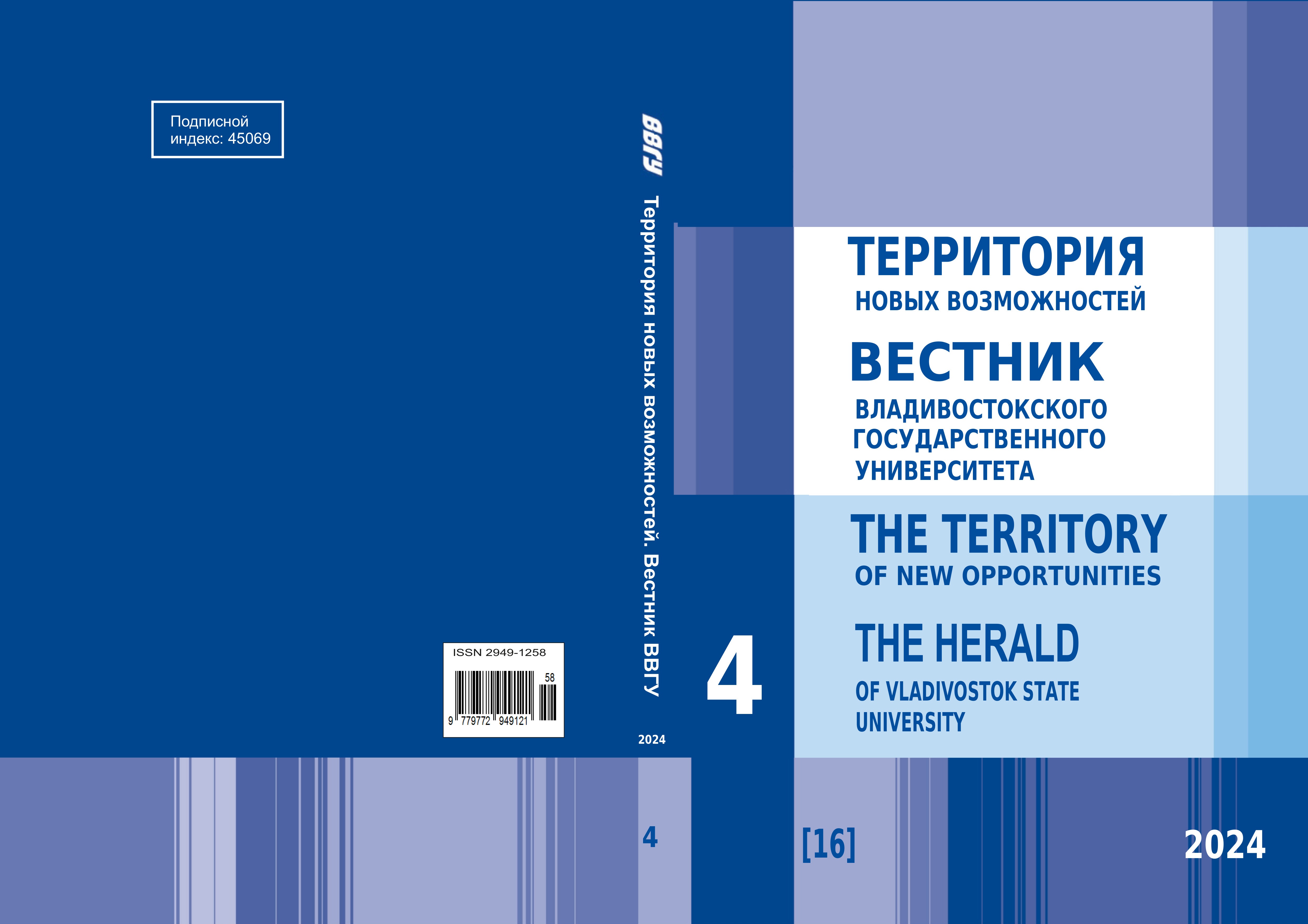employee
Vladivostok, Vladivostok, Russian Federation
In the post-Soviet states, the identification regulation was uniform at the time of the USSR collapse. The subsequent development of independent criminal procedure legislation led to the emergence of original provisions in the normative model of identification in some states, including the Republic of Moldova. The existing regulation of identification in the Russian criminal procedure law is static, differs little from the Soviet analogue, and has a number of shortcomings. The subject of the study is the norms regulating the identification procedure in the Criminal Procedure Code of the Republic of Moldova. The study purpose: to identify the features of the regulation of identification in the Moldovan criminal procedure law in comparison with the Russian analogue. The study was conducted in compliance with the cognition philosophical principles: comprehensiveness, objectivity, historicism, pluralism, the determining role of practice in the process of cognition, and using formallogical and comparative-legal methods, as well as document analysis. To date, no works have been published that would outline the specifics of regulating presentation for identification in the criminal procedure law of the Republic of Moldova. The study has cognitive significance. Also, the presented results can be used to improve the normative model of presentation for identification in the Criminal Procedure Code of the Russian Federation. In general, the algorithm for regulating presentation for identification in the criminal procedure laws of the Republic of Moldova and the Russian Federation are similar. However, a number of provisions in the Criminal Procedure Code of the Republic of Moldova are of interest for possible borrowing. In particular, provisions on the preliminary preparation of identifiable items; on the quantity and quality of objects presented for identification.
criminal procedure legislation of the Republic of Moldova, criminal procedure legislation of the Russian Federation, presentation for identification, object of identification, requirements for the object of identification, number of identifiable objects, procedural assistant
1. Ugolovno-processual'nyy kodeks RM ot 14.03.2003 (po sost. na 13.09.2024). URL: https://www.legis.md
2. Ugolovno-processual'nyy kodeks Moldavskoy SSR ot 24.03.1961. Kishinev, 1961.
3. Osoianu T. Reforma judiciară şi de drept în Republica Moldova – directive principale în vederea integrării europene. Publication: Chişinău: Centrul Editorial al Universităţii de Criminologie, 2002.
4. Smochina A., Smochina C. National legal doctrine: history and contemporaneity // Legal studies and research. 2023. Part 1, № 5. P. 13–29.
5. Ugolovno-processual'nyy kodeks RF ot 18.12.2011 № 174-FZ // SZ RF. 2001. № 52 (ch. 1), st. 4921.
6. Ugolovno-processual'nyy kodeks RSFSR ot 27.10.1960 // Vedomosti VS RSFSR. 1960. № 40, st. 592.
7. Ozhegov S.I. Tolkovyy slovar' russkogo yazyka: 72 500 slov i 7500 frazeologicheskih vyrazheniy. Moskva: Az', 1994. URL: https://slovarozhegova.ru/?- ysclid=m11owo7je4145818051 EDN: https://elibrary.ru/TDDBOT
8. Paramonova G.V., Bragish A.V., Dubovik E.S. Gabitoskopiya i portretnaya ekspertiza. Sankt-Peterburg, 2022. EDN: https://elibrary.ru/LDARBH
9. Rahimov A.I. Povyshenie dostovernosti sledstvennogo deystviya «pred'yavlenie dlya opoznaniya» s pomosch'yu metoda psihofiziologicheskih issledovaniy // Vestnik Moskovskoy akademii Sledstvennogo komiteta. 2020. № 1. S. 175–180. EDN: https://elibrary.ru/ARPXRL
10. Prigovor Zheleznodorozhnogo rayonnogo suda g. Chity po delu № 1-264 ot 16.11.2016. URL: https://actofact.ru
11. Prigovor Sverdlovskogo rayonnogo suda g. Kostromy po delu № 1-25/2018 ot 26.02.2018. URL: https://sudact.ru
12. Shamonova T.N. Osobennosti taktiki pred'yavleniya dlya opoznaniya // Sohranyaya proshloe, opredelyaya nastoyaschee, predvoshischaya buduschee: sb. nauch. tr., posvyaschennyh 90-letiyu d-ra yurid. nauk, professora, zasluzhennogo deyatelya nauki Respubliki Belarus' A.V. Dulova. Minsk, 2014. S. 150, 151.
13. Egorova E.V., Buryka D.A. K voprosu o vidah pred'yavleniya dlya opoznaniya // Vestnik Moskovskogo universiteta MVD Rossii. 2015. № 1. S. 119–123. EDN: https://elibrary.ru/TKONNZ
14. Kal'nickiy V.V., Larin E.G. Sledstvennye deystviya. Omsk, 2015. 172 s. EDN: https://elibrary.ru/WZWMWL
15. Ugolovno-processual'nyy kodeks KR ot 28.10.2021 № 129 (po sost. na 05.08.2024). URL: https://online.zakon.kz
16. Prigovor Ol'skogo rayonnogo suda Magadanskoy oblasti po delu № 1-43/2020 ot 16.11.2020. URL: https://sudact.ru
17. Prigovor Horol'skogo rayonnogo suda Primorskogo kraya po delu № 1-98/2017 ot 13.09.2017. URL: https://sudact.ru
18. Prigovor Ingodinskogo rayonnogo suda g. Chity po delu № 1-309/2020 ot 13.07.2020. URL: https://sudact.ru
19. Prigovor Neryungrinskogo gorodskogo suda Respubliki Saha (Yakutiya) po delu № 1- 16/2020 ot 21.02.2020. URL: https://sudact.ru
20. Prigovor Smidovichskogo rayonnogo suda Evreyskoy avtonomnoy oblasti po delu № 1-35/2018 ot 18.07.2018. URL: https://sudact.ru
21. Ivanova L.F., Ivanov D.S. Pred'yavlenie dlya opoznaniya (psihologicheskiy aspekt) // Vestnik YuUrGU. Seriya: Pravo. 2018. T. 18, № 2. S. 21–25. DOI:https://doi.org/10.14529/law180203 EDN: https://elibrary.ru/OUMRCJ
22. Ratinov A.R. Sudebnaya psihologiya dlya sledovateley. Moskva, 2001.
23. Budyakova T.P. Eksperimental'naya ocenka effektivnosti slovesnogo portreta pri opoznanii lichnosti // Eksperimental'naya psihologiya. 2016. T. 9, № 2. S. 53–65. DOI:https://doi.org/10.17759/exppsy.2016090205 EDN: https://elibrary.ru/WMTNCL
24. Prigovor Romnenskogo rayonnogo suda Amurskoy oblasti po delu № 1-5/2019 ot 13.05.2019. URL: https://sudact.ru
25. Prigovor Pskovskogo gorodskogo suda po delu № 1-376/2019 1-9/2020 ot 17.01.2020. URL: https:// sudact.ru





